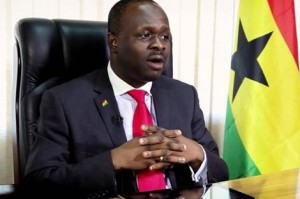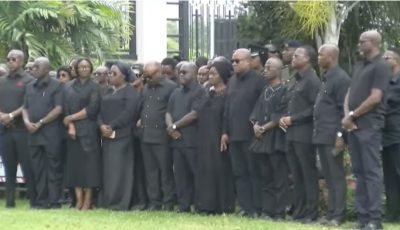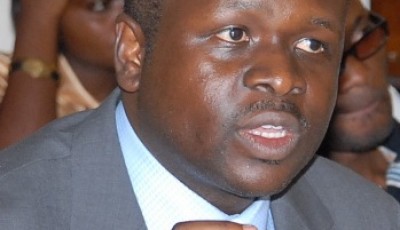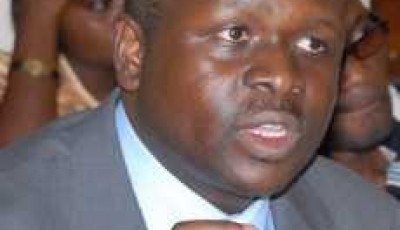Warning: Undefined array key "dirname" in /home/anapuafm/public_html/wp-content/themes/anapuafm/include/plugin/filosofo-image/filosofo-custom-image-sizes.php on line 133
Warning: Undefined array key "extension" in /home/anapuafm/public_html/wp-content/themes/anapuafm/include/plugin/filosofo-image/filosofo-custom-image-sizes.php on line 134
Why Internet In Ghana Not Controlled – Omane Boamah Explains.
 Dr Edward Omane Boamah, the Minister of Communications has said government does not control the internet in Ghana.
Dr Edward Omane Boamah, the Minister of Communications has said government does not control the internet in Ghana.
This he said is because government is respecting all principles governing the operation of the internet and it is supporting the “Internet Communities to actively participate in discussion relating to the “security” of the internet.
Dr Edward Omane Boamah explained that, internet governance should be based on an inclusive, transparent and accountable multi-stakeholder model.
He observed that the Internet Registry was undergoing re-delegation process with the involvement of stakeholders.
The Communication Minister made this known in a keynote address read on his behalf by Mr Issah Yahaya, the Chief Director of the Ministry, at the Internet Assigned Names Authority (IANA) stewardship transition and enhancing Internet Corporation for Assigned Names and Numbers (ICANN) accountability stakeholder meeting in Accra.
The meeting was organised by the Ghana Chapter of the Internet Society, in collaboration with the National Information Technology Agency (NITA), Advanced IT Institute – Kofi Annan Centre of Excellence in IT (AITI-KACE) and the Ghana ISP Association (GISPA).
Dr Omane Boamah cited the United States, where stakeholders are expected to decide on what to do with its links with ICANN by September 2015, declaring that, the internet according to the proponents should remain a single, open, free, un-fragmented network of networks, subject to the same laws and norms that apply in other areas of day-to-day life.
“The European Union proposes a “genuine multi-stakeholder’ model as a way to address the risk of policy capture in Internet Governance (IG). It has become a real risk in IG bodies, that entities with financial and organizational strength can easily dominate policy discussions,” he said.
He said the Computer Emergency Response Team (CERT-GH) frame had been activated and it was operational with a Child Online Protection portal. “Cyber security is of global concern and every effort is being made with global collaboration for public awareness and accountability,” he stated.
The Minister noted that the Technical Internet Community in Ghana was challenged to be more involved in the creation of standards (IETF) and participate in other key global technical issues.
He appealed to ICANN to intensify its capacity building programme in the country and help with the training and skills transfer of the enthusiastic youth. “Thankfully, Ghana has the presence of Dr Nii Narku Quaynor, the father of the Internet in Africa, who has not only won the prestigious John Postel Award, as the foremost Internet Engineer in 2007, but has also been inducted to the Internet Hall of Fame. “I will encourage our youth and upcoming engineers to follow in his shoes and aspire to greater accomplishments,” he said.
Mr Pierre Dandjinou, the Vice President of ICANN Africa, in his presentation, said efforts were being made to integrate Africa within ICANN through better presence of ICANN on the continent.
He said for the Internet and its community of users, discussions on the proposed transition of the IANA functions is important because it concerns both the technical stability of the Internet and the accountability to the public for these functions.
Ms Dorothy Gordon, the Director-General of the AITI-KACE urged African countries to take the IANA stewardship transition and enhancing ICANN accountability very seriously. The Accra meeting brought together the technical Internet community and other stakeholders in Ghana together to review the proposals that had been made so far regarding the IANA transition and contribute to the debate.
The IANA functions involve a set of technical specifications that allow people to send emails and access websites in a friendly and easy way; they are part of a technical design. The IANA Stewardship discussions were in response to a near break-up of the Internet in 2014, when there were claims of mass surveillance by the USA on some countries.
A global call was therefore, made for a global multi-stakeholder entity to which the National Telecommunication Information Administration (NTIA) will transition the stewards (ownership) of the IANA function to which debates are ongoing and will end in June 2015.
The ICANN Africa on its part has organized a series of activities in this direction but has set April 2015 aside to engage the IANA stakeholders (technical, legal and administrative organizations who work on Internet Numbers (IP) and Domain names) in African countries, hence the stakeholder meeting in Ghana.
Source: GNA.




